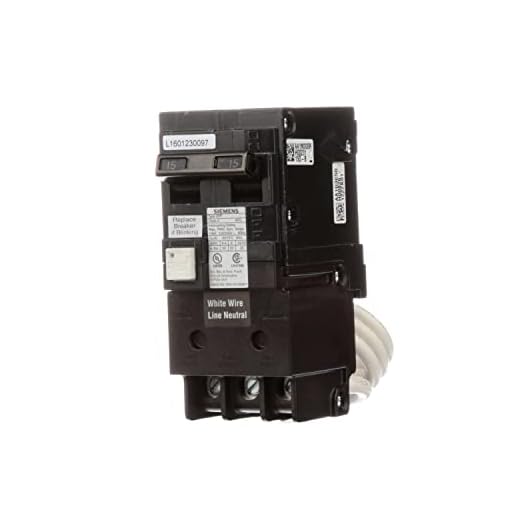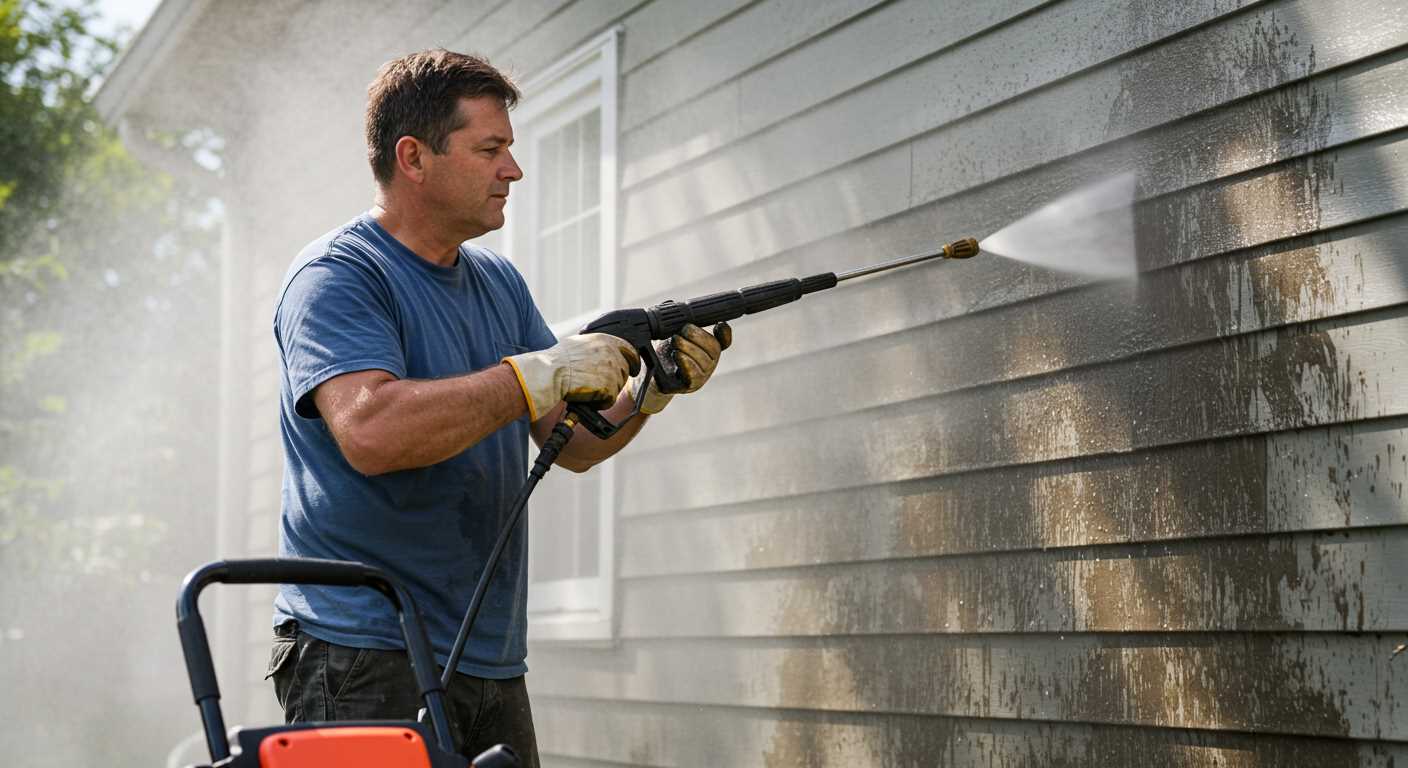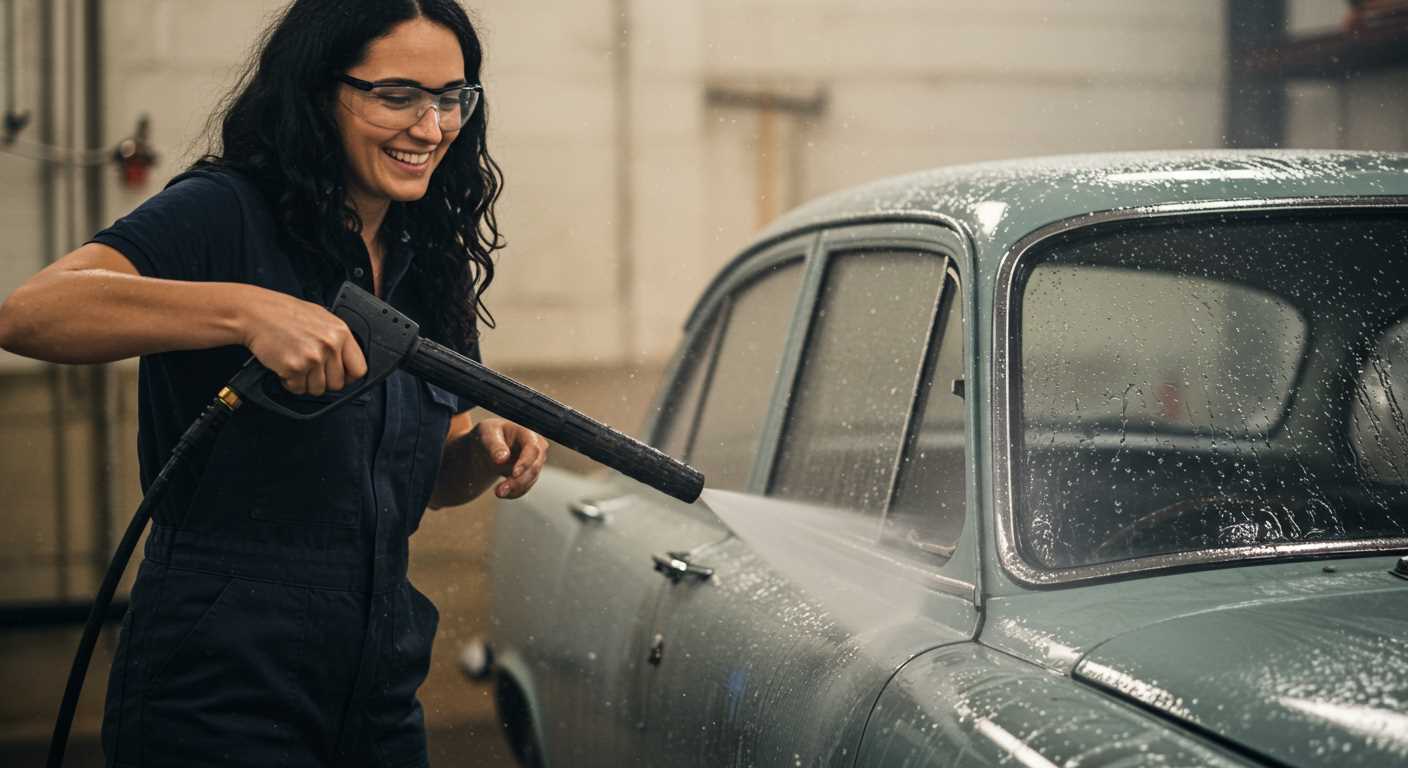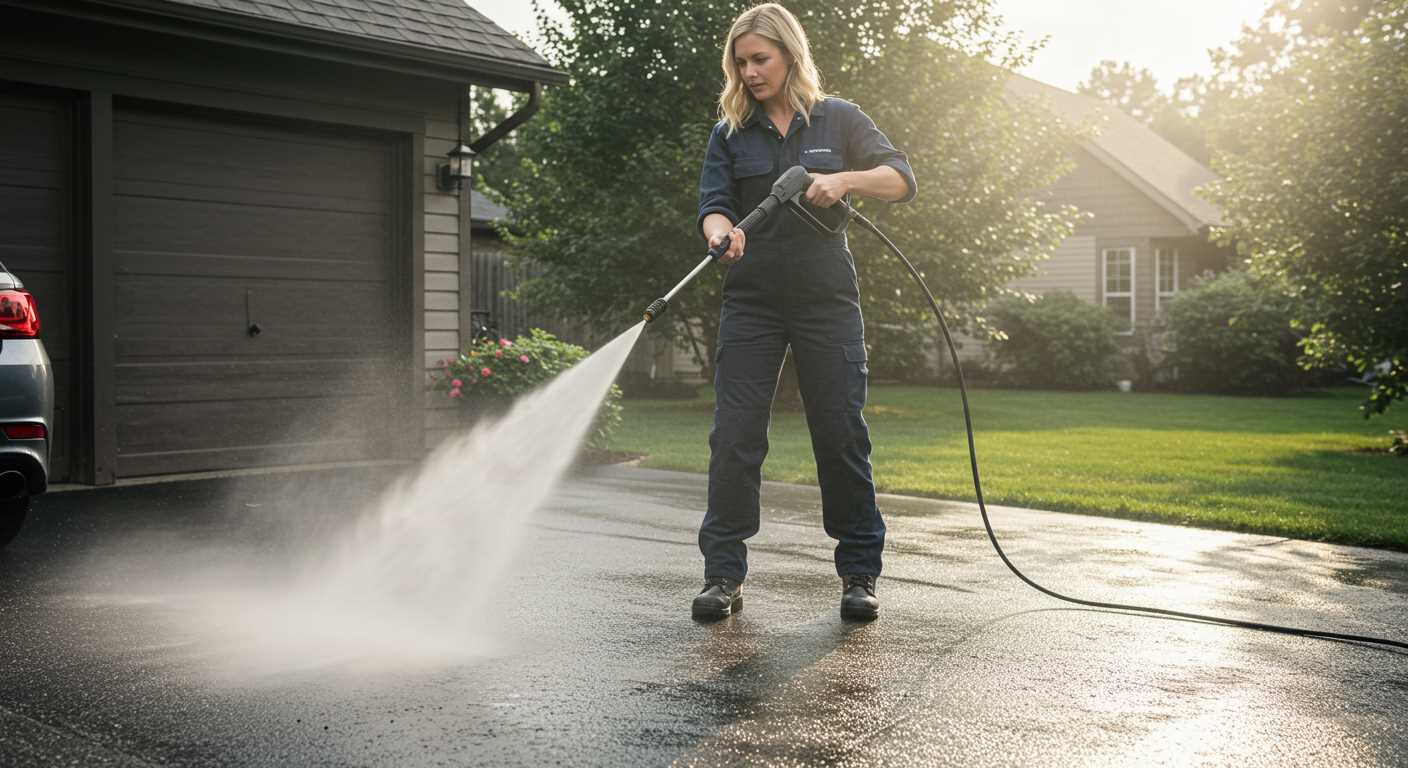

Avoid any direct exposure to electrical sources while operating high-pressure cleaning devices. The risk of electrical shock poses a significant threat, especially when water is involved. Water and electricity are a dangerous combination; moisture can easily facilitate the passage of electric current, increasing the likelihood of serious injury or fatality.
Always inspect the electrical connections and cords prior to use. Ensure that everything is in proper working condition and free from any wear or damage. Using equipment with faulty wiring or compromised insulation can drastically heighten the risk of an accident. For safety, consider using ground fault circuit interrupters (GFCIs) to provide an additional layer of protection against electric shock.
When operating these machines, maintain a safe distance from any electrical outlets and lines. Avoid operating the device in wet conditions, as puddles or damp surfaces can conduct electricity. Keeping the work area dry and clear of obstructions is crucial in minimizing hazards.
It’s critical to stay vigilant about protective measures while performing cleaning tasks. Wearing insulated footwear and using waterproof gloves can provide extra safety against any unforeseen electrical incidents. Being proactive about safety ensures a more secure and effective cleaning experience.
Understanding the Mechanics of Pressure Washers
When selecting a high-pressure cleaning unit, it’s pivotal to grasp the underlying mechanics that facilitate its operation. The heart of such devices is the pump, which pressurises water, allowing it to escape at remarkable speeds through a narrow nozzle. This action generates a powerful jet capable of removing dirt, grime, and other stubborn residues from surfaces.
Most models are equipped with either electric or petrol engines, each providing distinct advantages. Electric motors are quieter and generally easier to operate, making them ideal for residential tasks. In contrast, petrol engines deliver higher PSI levels, suitable for commercial applications where robust cleaning is essential.
Understanding the significance of PSI (pounds per square inch) and GPM (gallons per minute) is crucial. PSI measures the force of the water jet, while GPM indicates the flow rate. A unit with high PSI but low GPM might be effective for tough stains but could leave behind a significant amount of dirty water, prolonging cleaning time. Achieving a balance between these two metrics is key for optimal performance.
Another critical aspect is the nozzle type. Nozzles come in various sizes and spray patterns, each designed for specific tasks. A narrow, focused stream is perfect for tough surfaces, while a wider spray can cover larger areas more quickly. Adapting the nozzle according to the cleaning needs can greatly enhance efficiency.
Additionally, some advanced models feature adjustable pressure settings or built-in detergent dispensers, further enhancing their versatility. Familiarising oneself with these options can lead to better results tailored to diverse cleaning challenges.
Maintaining equipment is equally important. Regular checks on the pump, hoses, and connections ensure longevity. Keeping it free from blockages and performing periodic inspections can significantly extend the lifespan of the unit.
The Role of Water Conductivity in Electrical Shock Risk
Water conductivity significantly influences the risk of electrical hazards. Whether it is fresh or saltwater, the ionic content alters its ability to conduct electricity. Freshwater has lower conductivity compared to saltwater, which can facilitate a higher chance of electrical transmission.
Understanding Water Types and Their Conductivity

When assessing electrical danger, consider these common water types:
| Water Type | Conductivity (µS/cm) | Risk Level |
|---|---|---|
| Freshwater | 50-500 | Low |
| Chlorinated Water | 500-2,000 | Medium |
| Saltwater | 30,000+ | High |
Minimising Risk Factors
To mitigate the risk of electrical accidents, utilise these precautionary measures:
- Regularly inspect and maintain all equipment to prevent unexpected electrical issues.
- Always operate devices in dry conditions to reduce water-related risks.
- Use Ground Fault Circuit Interrupters (GFCIs) as an added safety measure, particularly in wet environments.
Awareness of water conductivity and its implications is key to maintaining safety in high-pressure cleaning tasks. Ensuring that appropriate precautions are in place can greatly diminish the likelihood of electrical transmission and subsequent risks associated with high-power equipment.
Common Electrical Hazards Associated with Pressure Washers
The potential perils of using high-pressure cleaning devices stem largely from their electrical systems. Understanding these risks is vital for maintaining safety during operation. Here’s a list of common electrical hazards to consider:
- Worn Cables: Inspect power cords regularly. Damaged or frayed cables increase the likelihood of electrical faults.
- Moisture Exposure: These machines are often used outdoors, risking water contact with electrical components. Ensure all electrical parts remain dry to avoid short circuits.
- Unstable Connections: Loose connections can lead to overheating. Always check that plugs and sockets are secure before use.
- Improper Use of Extension Cords: Using non-rated extension leads can cause overheating or electrical shock. Only use cords designed for outdoor and high-power applications.
- Lack of Ground Fault Circuit Interrupters (GFCI): Always operate equipment with GFCIs in place. This safety feature cuts off electrical current in the event of a ground fault.
- Overloading Outlets: Connect a single device to an outlet to prevent overloads that could lead to fire hazards. Avoid daisy chaining multiple devices.
Preventative Measures
To reduce the risk of electrical hazards, implement these practices:
- Conduct regular inspections of the machine’s electrical components.
- Use devices designed to operate in wet conditions.
- Ensure all electrical contacts are free of moisture before connecting the device.
- Engage qualified technicians for any repairs in electrical systems.
- Store equipment indoors when not in use, protected from the elements.
By adhering to these guidelines and understanding the electrical hazards, users can enjoy the benefits of efficient cleaning while minimising risks. Always prioritise safety to ensure that high-pressure cleaning remains a viable option in your toolkit.
Factors That Increase the Risk of Electric Shock

High humidity levels significantly elevate the potential for electrical hazards. Water droplets can facilitate the movement of electricity, creating pathways for current to travel, especially if equipment is not properly insulated.
Proximity to metal surfaces, such as fences or containers, can also amplify danger. Metal conducts electricity; therefore, standing near such objects while operating equipment may lead to unforeseen issues.
Condition of Electrical Cords
Adequate inspection of electrical cords is essential. Frayed wires or damaged insulation heighten the risk of exposure to live currents. Regular maintenance is crucial, as even minor wear can provide pathways for electricity to escape.
Use of Equipment in Wet Environments
Operating devices in wet conditions increases the chance of electric contact. Water acts as a conductor, making it imperative to avoid usage in areas where moisture accumulation is evident. Implementing barriers or using equipment rated for outdoor and damp environments can mitigate risks.
Safety Precautions When Using Pressure Washers
Always ensure the work area is clear of any electrical hazards. Keep the equipment away from power lines and avoid using it in wet conditions to minimise risk. Inspect the power cord for any signs of damage before operation. If you spot frays or exposed wires, refrain from using the device until repairs are made.
Wear proper personal protective equipment, such as gloves, goggles, and rubber-soled shoes, to shield against debris and reduce slip hazards. Be cautious around surfaces that may conduct electricity, like metal or wet flooring.
Routine Maintenance Checks

Regularly check the pressure equipment for leaks or signs of wear. A well-maintained system reduces the likelihood of malfunction, which can lead to electric hazards. Pay special attention to the connection points and seals.
Following Operating Instructions
Adhere strictly to the manufacturer’s guidelines for use. Familiarise yourself with the controls and emergency shut-off procedures during the initial setup. Using the device as intended significantly decreases risks associated with high-pressure water and electricity.
What to Do If You Experience an Electric Shock
Immediately disconnect the power source if you feel an electric jolt while using cleaning equipment. This action prevents further exposure to electricity.
Assess Your Condition
Once detached from the power, take a moment to evaluate any symptoms:
- Check for burns or skin marks at the contact points.
- Be aware of dizziness or confusion, which may indicate a serious incident.
- Monitor your heart rate; irregularities may require immediate medical attention.
Seek Medical Attention
Regardless of perceived severity, consult a medical professional. Some injuries may not manifest immediately and can lead to complications.
If you’re with someone who experiences an electric shock, call emergency services immediately while ensuring they remain as still as possible until help arrives.
Stay calm and avoid touching the person if they still have contact with an electrical source. Use a non-conductive object to push them away from the source, ensuring your own safety.
Document any details of the incident, including the condition of the equipment involved. This information can be useful for medical professionals and repair technicians.
Lastly, consider reviewing safety protocols for operating electric cleaning devices to prevent future incidents. Investing time in understanding equipment and safety standards is always worthwhile.








